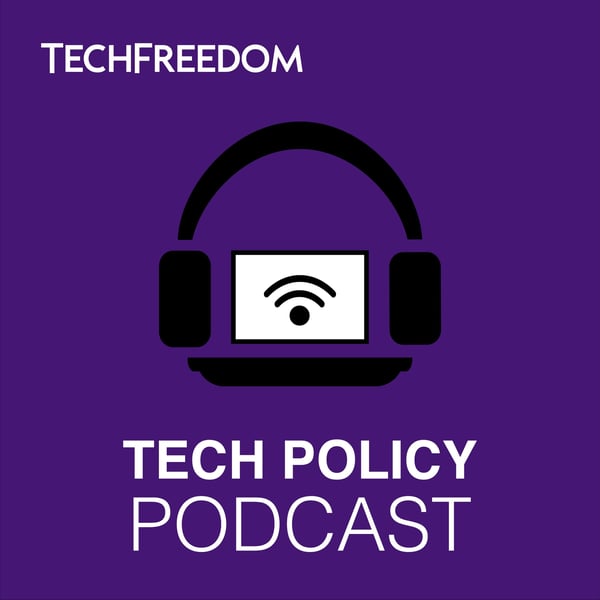#129: Surveillance on Arab-Americans
Tech Policy Podcast
TechFreedom
4.8 • 45 Ratings
🗓️ 30 September 2016
⏱️ 29 minutes
🧾️ Download transcript
Summary
Transcript
Click on a timestamp to play from that location
| 0:00.0 | Welcome to the Tech Policy Podcast. I'm Evan Swartzbrber. On today's show, government surveillance in the Arab American and Muslim American communities. Anyone who's taking a flight after 9-11 noticed some differences. You know, long lines, at TSA, having to take off your shoes. But that experience |
| 0:22.1 | might seem inconvenient, but everything's relative, of course. And being an Arab American or Muslim |
| 0:26.5 | American, post-9-11, there's a lot more to it than just having to take your shoes off at the airport. |
| 0:32.1 | What does it mean to be a Muslim American or an Arab American in the post-9-11 world? |
| 0:36.8 | And how are our surveillance |
| 0:38.1 | policies, whether it comes to social media or phone tapping, affecting this community? |
| 0:43.3 | Joining me to discuss this is Yolanda Rondon, staff attorney with the American Arab Anti-Discrimination |
| 0:48.7 | Committee that is ADC for short. Yolanda, thanks so much for joining the show. |
| 0:53.2 | Thank you for having me. So, Yolanda, just to much for joining the show. Thank you for having me. |
| 0:54.8 | So Yolanda, just to start off the show, people might not be familiar depending on where |
| 0:58.9 | you're from and who you associate with what it is really like after 9-11 to be an Arab American |
| 1:04.8 | or a Muslim American or basically to be perceived as being the same or similar to the perpetrators of the attack. |
| 1:12.3 | So just give us a brief history of how things changed for Muslims and Arab Americans after 9-11. |
| 1:20.0 | Well, Arab Americans traditionally were thought of or classified as white by both public policy as well as in laws and regulations. |
| 1:31.0 | After 9-11, Arab Americans all of a sudden woke up one day and felt they could no longer identify and celebrate their culture. |
| 1:38.5 | They no longer refused and refused to dress in a traditional garb, refrained from speaking Arabic, went through extraordinary |
| 1:46.5 | efforts when applying on applications to disavow the Muslim or Arab identity. But more so than that, |
| 1:55.7 | they became targeted by basis of how they looked and facial features, including wearing a beard, including |
| 2:02.6 | characteristics of their noses, as well as their hair texture. |
| 2:07.6 | But more so than that, they woke up and felt that they were no longer American. |
| 2:12.6 | Their identity was stripped away from them. |
| 2:16.6 | And so they went through extraordinary laces sum to refrain from naming their children traditional Arabic names and refraining from teaching their children the Arabic language. |
... |
Transcript will be available on the free plan in -3105 days. Upgrade to see the full transcript now.
Disclaimer: The podcast and artwork embedded on this page are from TechFreedom, and are the property of its owner and not affiliated with or endorsed by Tapesearch.
Generated transcripts are the property of TechFreedom and are distributed freely under the Fair Use doctrine. Transcripts generated by Tapesearch are not guaranteed to be accurate.
Copyright © Tapesearch 2025.

